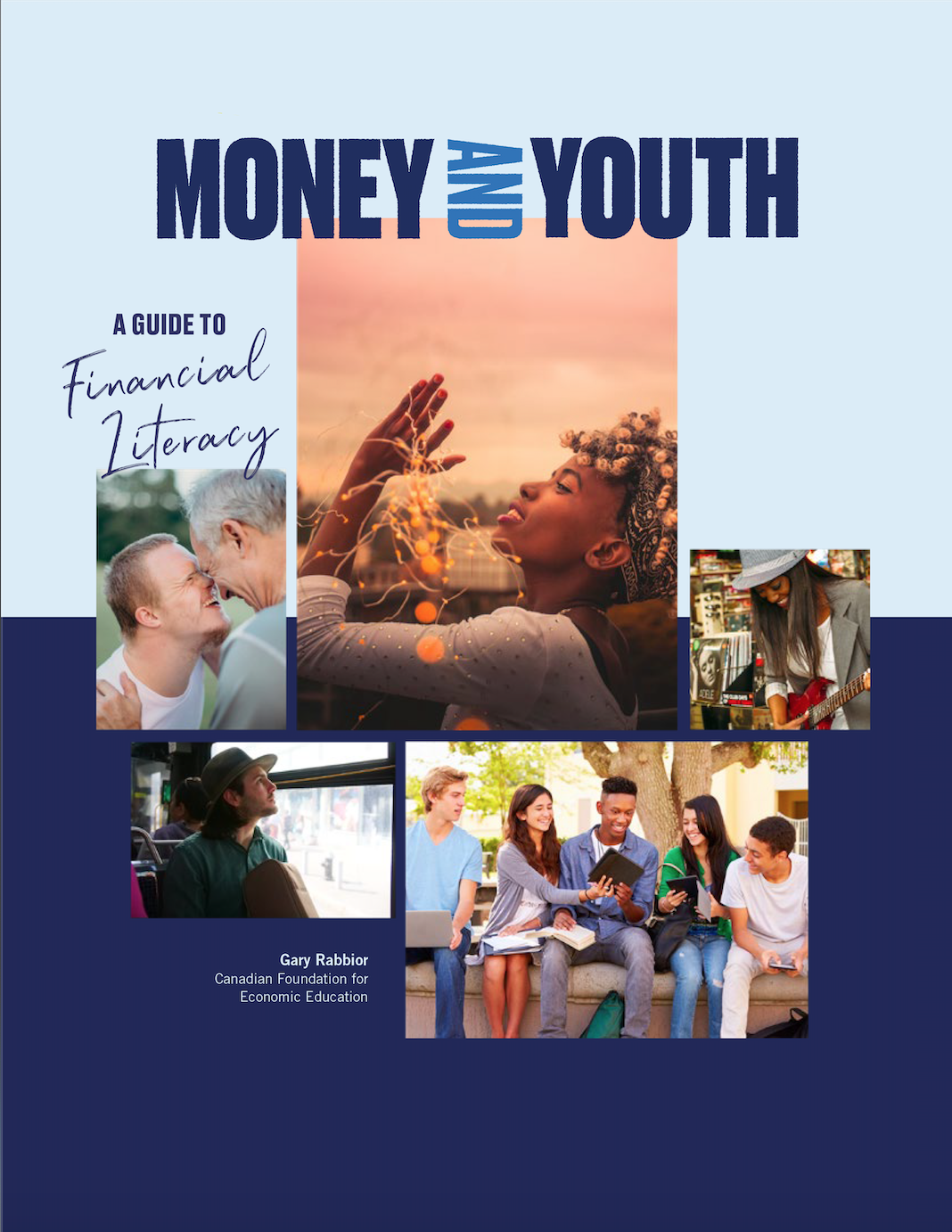Let’s assume you have found one or more ways to get money. You have an income coming in. You have money decisions to make. What are you going to do with your money? How are you going to manage it?
Download ModuleModule 9 Taking Control Of Your Money

Teacher's Guide
The following lesson can be used as a companion to Module 9 of Money and Youth – Taking Control of Your Money.
Relevant Subjects and Topics:
Money and Finance, Budgeting, Moving Out, Financial Planning, Decision-making
Outcomes:
At the end of this lesson, students will be able to:
- Explain how a budget can help you to take control over your financial affairs
- Describe the key components of a budget
- Propose a rationale for having a budget
- Develop a budget for personal use
Time for Implementation:
Two class periods
Teaching and Learning Strategies:
Period One:
- Begin the lesson by asking the students to indicate whether or not they have trouble saving money.
- Ask those who have trouble to explain why and those who do not to indicate how they do it.
- Ask the students to quickly write down what percentage of their money they use for various things.
- Get their responses and then ask them how they know that – is it simply a guess?
- Ask for a show of hands indicating those who put some of that money in each of a Save, Spend, Share allocation.
- With this as background, indicate to the students that the focus of the lesson will be on taking control of your money.
- Ask them to explain what they think is meant by the term “budget.” Do they think that budgets are restricting or enabling?
- Once they have provided their ideas, explain to them that budgets are enablers in that they help people to achieve their financial goals.
- Indicate to them that budgets are a type of living organism in that they get changed as situations and circumstances dictate but, in essence, budgets help a person to control their money and direct it to meet immediate and longer-term needs.
- Divide the class into working groups of three to four students and assign a budget building exercise.
- The groups are to personalize the budget by deciding the following:
- The person’s age
- Marital status
- Family status
- Income
- Once they have done this, they are to use the budget worksheet found in Handouts/Resources below and complete the form.
- Allow the remainder of the period for the completion of the task.
Period Two:
- Begin the period by having the groups present their budgets.
- Once this has been completed, hold a plenary session and look at the similarities and differences of the budgets.
- Once this discussion has been completed, indicate to the students that they are to use the form and create their own personal budget following these tips:
- Build your budget based on what you need and what you are hoping to achieve
- Be honest and realistic
- Keep it simple – too much complication gets disheartening
- Allow the remainder of the period for the completion of the budget and then have the students hand it in. Inform them that the budgets will be returned to them at the next period so they can see if they can follow that budget for a predetermined amount of time.
Handouts/Resources:
Evaluation:
- The constructed budgets – both group and individual – can be handed in.
Modifications or Suggestions for Different Learners:
- Those with difficulty writing could have someone complete the worksheet as they dictate.
Additional Related Links:
- Money and Youth - http://moneyandyouth.com
- Making a Budget - https://www.canada.ca/en/financial-consumer-agency/services/make-budget.html
- Why Saving Money is Important - https://www.investopedia.com/articles/personal-finance/031215/why-saving-money-important.asp
- Save, Spend, Share, Invest - http://msue.anr.msu.edu/news/save_spend_share_invest_four_ways_to_use_your_money_part_1
Additional Possible Activities:
- The students could follow their personal budget for a month and then report back on their experience.
- The students could consider things they might do with the money that they have saved.
- The students could consider ways in which they could allocate those funds set aside for sharing.
Parent Resources
Why is this important?
As youngsters reach adolescence they increasingly encounter the need to understand and practice finance and money management. Their first experiences with income from such things as a part-time job usually are met with urges to buy things with little regard to long-range goals. As parents and guardians, we have the responsibility to give them skills to think beyond immediate urges and to manage those resources effectively. We can help them avoid developing bad habits in money management that could result in disastrous actions as adults.Ways to engage your child and fun things to do.
There are a number of things we can do to help them become financially responsible.- Sit down with your son or daughter and give them the saying, “The person who doesn’t know where his next dollar is coming from usually doesn’t know where the last one went,” and ask them to explain it. With this discussion completed, engage them in a discussion about how they monitor their spending and earnings. Do they divide it into the three areas of saving, spending and sharing?
- Begin a discussion about something large they would like to purchase and how they are going about saving for it. Suggest that developing a budget can help reach that goal more effectively and look at that process together. Let them see a budget as an enabler rather than a constraint.
- Set up Envelope Budgeting with your son or daughter as a preliminary way of keeping track of their money and limiting undue expenditures. See the following website for assistance with this - https://www.thebalance.com/what-is-envelope-budgeting-1293682.
- Play a game of Financial Football https://www.practicalmoneyskills.com/play/financial_football with them as a means of introducing a discussion of money and budgeting.
Additional Background and Related Websites and Resources
- How to Teach Your Teen About Budgeting - https://www.thebalance.com/how-to-teach-your-teen-about-budgeting-4160105
- Budgeting For Teens - Grow Your Money - https://www.moneyunder30.com/budgeting-for-teens
- Teaching Teens to Budget - https://www.parenttoolkit.com/financial-literacy/advice/saving-and-spending/teaching-teens-to-budget
- Financial Football - https://www.practicalmoneyskills.com/play/financial_football



















